It is difficult to describe the sheer excitement we felt the moment the first trickle of golden-green olive oil emerged from the humming machine’s spout. We stood nervously for more than half an hour after feeding the funnel with about sixty pounds of freshly harvested olives. The crushing of the fruit seemed to last forever, and we were incredulously looking at each other and through the little square holes at the brownish slush, mashed and mixed for what seemed like an eternity. The pulp had to ‘appear very shiny and brimming with oil’ and only then could Costas turn the knob to transfer the ‘ripe’ paste into the next compartment that would, by centrifugal force, separate the pure, extra virgin olive oil from the dry solids — the crushed olive stones and the leftover skins.
Slide Show: Our First Olive Pressing
That was the theory, and it had worked perfectly the first time the technician demonstrated the machine’s capabilities. He came to Kea with our brand new olive press to make sure that we learned how to operate it properly, or a season’s harvest would be lost.The next day we proceeded by ourselves, without knowledgeable assistance, and we waited so long for these first drops of liquid gold that we forgot to prepare slices of toasted bread for immediate tasting, as is the custom. We did that later, when the first excitement subsided, and the doubts crept up on us. Had we turned the knob at the right moment? Was the olive oil as clear as it should be? The residue dry enough, and not wet with wasted oil? After performing the appropriate tests, we were finally confident that we had proceeded correctly. So we relaxed, or tried to, and Costas with Stathi, our neighbor and assistant, started to feed the machine and press the olives harvested the day before.
There is no commercial olive press on the island, and people spend several days gathering their olives in order to pack them in sacks and take them to an olive press on the mainland. But this process did not work for us. We were not interested so much in quantity but in quality; by the time the sacs travel by truck and boat to reach the olive press, half of the fruit would be moldy, to say the least. It is no wonder that nobody from Kea has managed to produce a decent olive oil, let alone a flavorful, fruity one. For some years we tried in vain to persuade the locals to organize some kind of cooperative and buy a small communal press. And up until this brand new type of compact little press was made available, it wasn’t viable for us to buy even the smallest of the professional presses. Then an Italian manufacturer of viniculture equipment came up with the boutique-type idea; he designed and manufactured a small, yet powerful enough machine, for people like us, who had small olive groves and aspired to produce entirely homemade olive oil.
By word of mouth, many southern Europeans who faced similar olive-decay problems found out about this new handy olive press, and both the manufacturer, as well as the Greek distributor, had difficulties meeting the great demand. By the time our press arrived to Kea, in the beginning of December, many olives had fallen from our trees, and the ones we managed to harvest and press were mostly over-ripe. As a result the oil we produced is fine for cooking and everyday use, but hardly exceptional and deliciously fruity.
Next fall, when we will be able to press our green olives at the perfect time –hopefully with the help of some of our Kea Artisanal guests — we may be able, weather permitting, to make an extra virgin olive oil with exceptional character. For the time being, we will still rely on the organic, fruity olive oil professionals, like our friends at Biolea, produce, for our delicate salads and to drizzle over toasted bread in the morning and on various dishes just before serving.
As I diligently repeat to all of you who ask me, people like us, who have the greatest respect for healthy, excellent food, never use the precious extra virgin oil for cooking and frying. And if, reading other Mediterranean recipes you still have doubts about my statement, I suggest you read what the scientists found out in blind tastings of various cooked oils, as Harold McGee brilliantly summed up in his column for the New York Times.

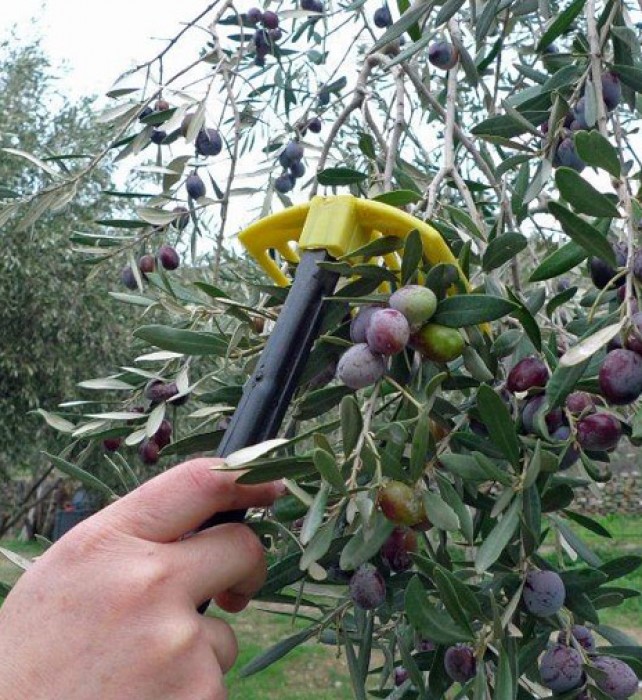
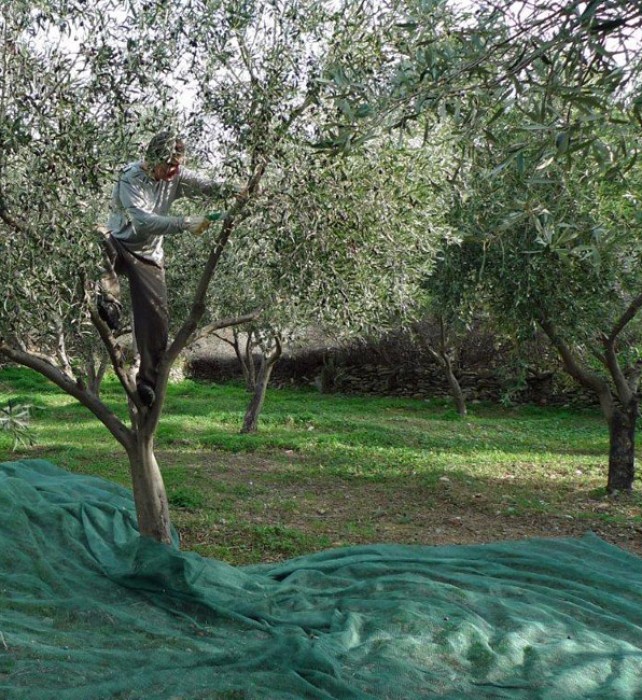

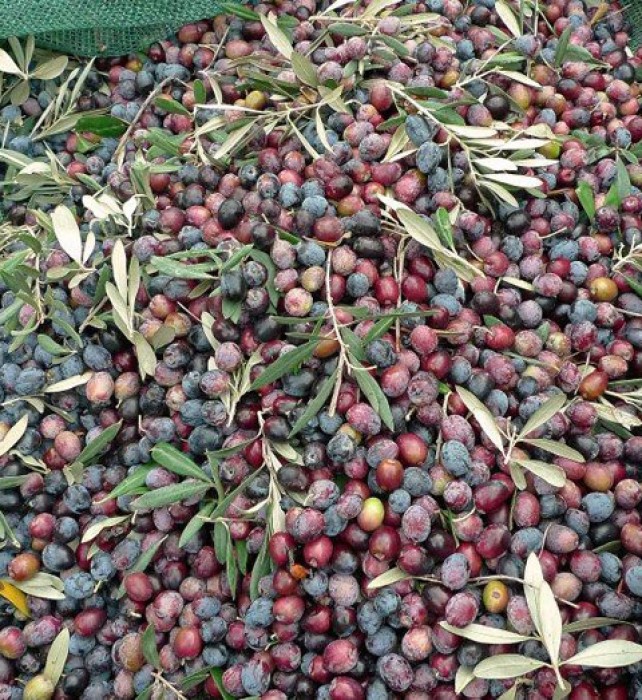





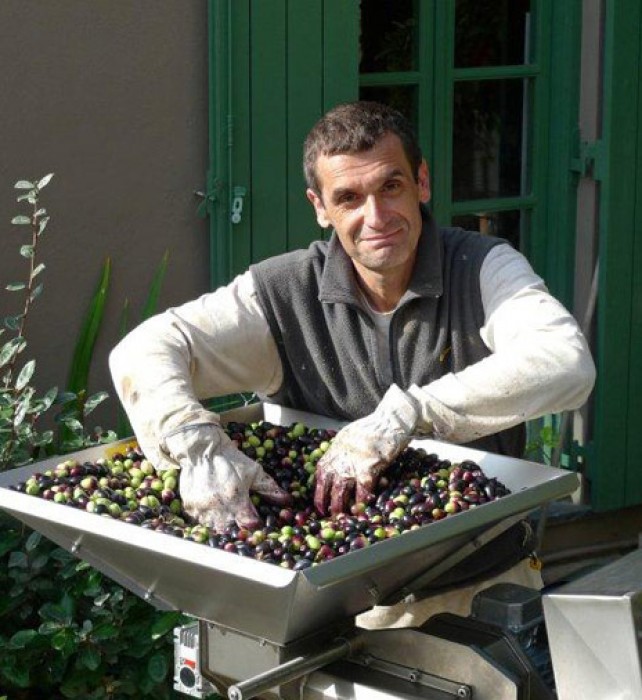
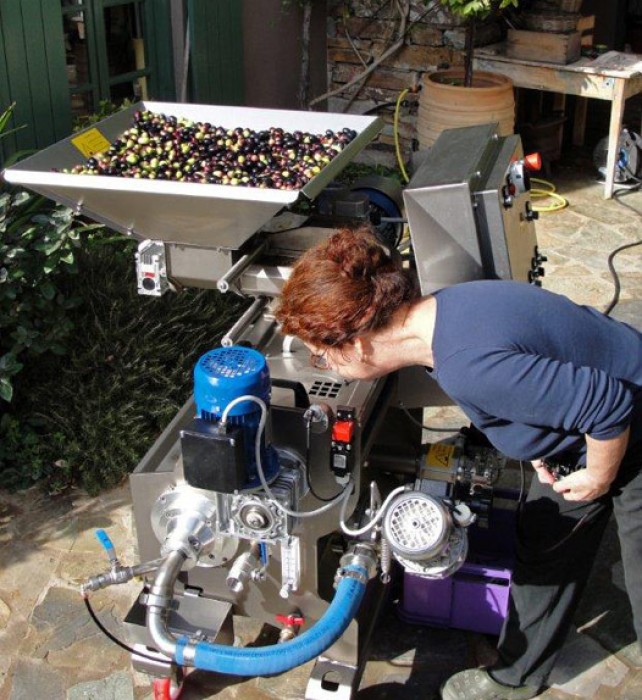
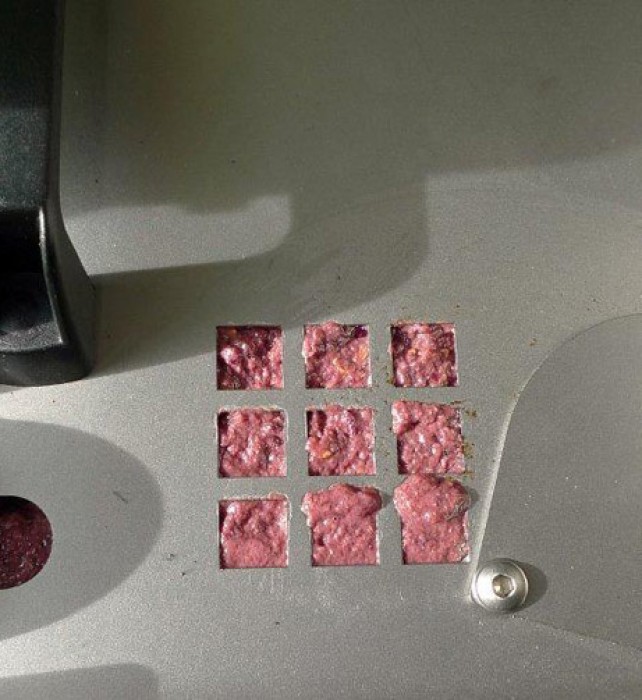
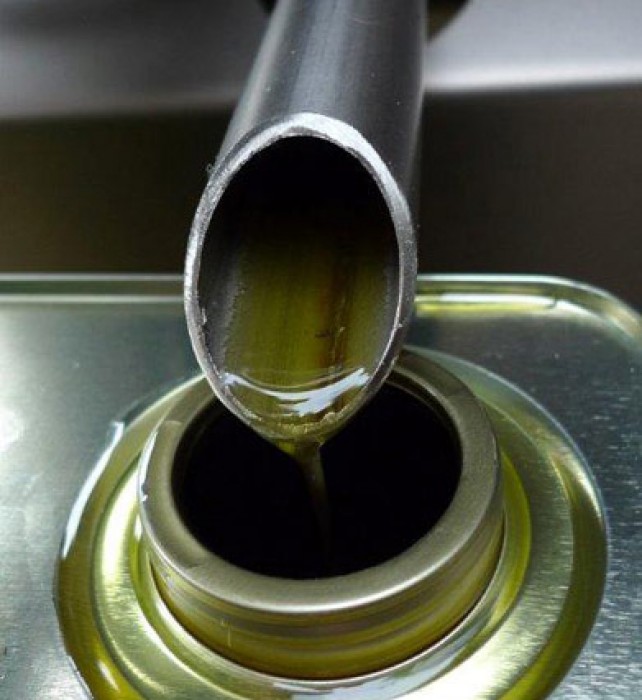

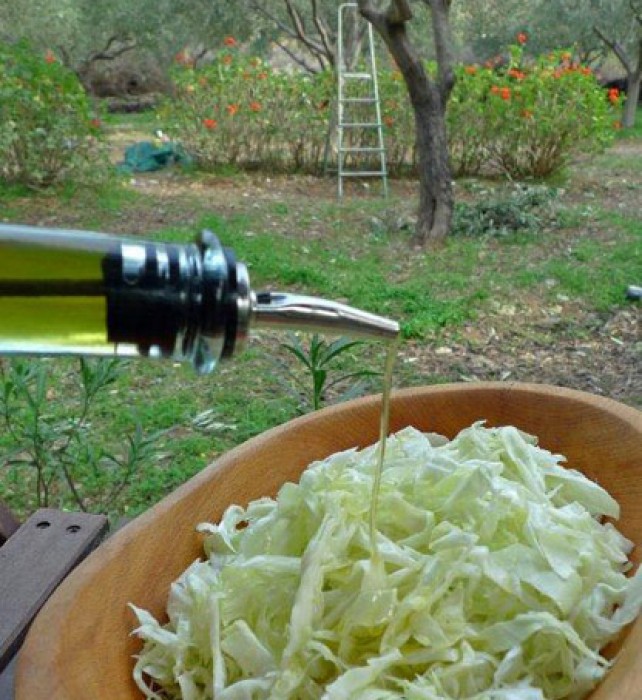
Hi there,
I am looking at purchasing a small home type olive mill, and this looks like it may fit the purpose. Could you please advise on the machine and supplier details.
Greatly appreciated and many thanks!